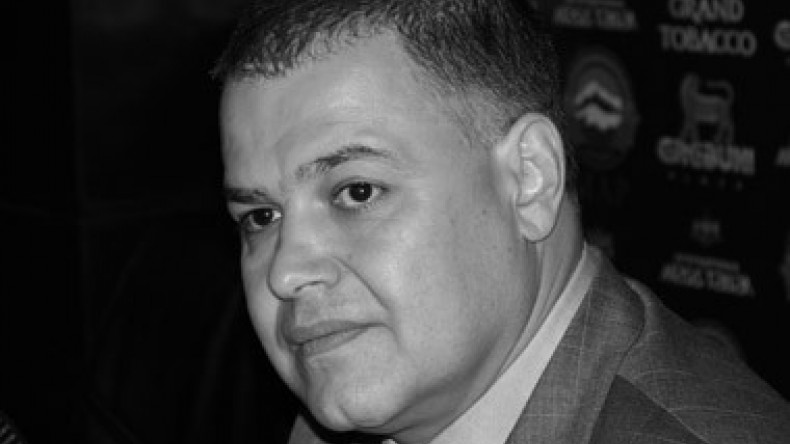
David Harutyunyan: Such sensitive issues should not be discussed in a cowboy-style
«Aravot» daily interviewed the Head of Armenian Parliament delegation to PACE Mr. David Harutyunyan who answered a number of questions regarding the restoration of Nagorno-Karabakh sub-committee of PACE, adopted in late January 2011.
Hereby are Mr. Harutyunyan’s comments on recent statements of PACE Nagorno-Karabakh sub-committee chairman Mr. Jordi Xucla i Costa, published by Panorama.am on February 24.
“Mr. Xucla i Costa’s interviews are another indication to conclude that the decision of PACE Bureau to resume the works of the Ad Hoc Committee on the implementation of Resolution 1416 was not wise and reasonable.
When on 4 February 2011 Trend.az published Mr. Xucla i Costa’s interview I was disinclined to react to it because the internet portal Trend.az is far from being a source of truthful and undistorted information. But after publication of Mr. Xucla i Costa’s recent interview to Panorama.am it became obvious, that there is nothing to choose between them. So I’ve decided to react to assertions and misinterpretations made in both interviews.
In his interview Mr. Xuclà i Costa insisted that the Armenian delegation was suspicious, but did not object to the reconstitution of the Ad Hoc Committee. This statement is far from reality not to say is absolutely false. In the letter addressed to all members of the Bureau the whole delegation was strongly against the reconstitution of the Ad Hoc Committee. My only assertion is that Mr. Xuclà i Costa never read that letter and was deliberately misinformed.
The approach proposed by Mr. Jordi Xuclà i Costa is exactly what we have been concerned about and what the co-chairs of the Minsk group have been warning against. There is no need to be an expert in Nagorno-Karabakh conflict to reject the description of that conflict by Mr. Xuclà i Costa as a “controversy between two sovereign countries, between the sovereignty and territorial integrity”. I would like to remind Mr. Xuclà i Costa that in their Joint Statement made in Almaty on 17 July 2010, the Heads of Delegations of the Minsk Group Co-Chair countries specifically underline that the proposed principles constituting the negotiating package “have been conceived as an integrated whole, and any attempt to select some elements over others would make it impossible to achieve a balanced solution”. So, elimination of two principles (namely - refraining from the threat or use of force and the equal rights and self determination of peoples) out of the three principles, which for a long period serve as a negotiated basis for peace process and introduction of new principle of sovereignty has not a leg to stand on. Moreover, non acknowledgment of Nagorno-Karabakh, a signatory party of the 1994 ceasefire agreement, as a conflicting part, may have dangerous consequences.
I reiterate that the Ad Hoc Committee was reconstituted by the Bureau without taking into consideration the proposals made by the Armenian delegation and the way it has been reconstituted puts under serious doubt the “real” intention to promote an atmosphere of dialogue between the two delegations to PACE.
The overall impression is that the President of the Assembly is hiding the exact reasons of the failure of the Ad Hoc Committee. The Ad Hoc Committee was established in 2005 and during the period of its “existence” it was unable even to promote confidence building measures between PACE delegations, let alone “promotion of a dialogue between the populations of the two countries concerned as well as the population of Nagorno-Karabakh”, as formulated by Lord Russell-Johnston in his report. The suspension of the activities of the Ad Hoc Committee was conditioned by this failure and not by the fact of the death of late Lord Russell-Johnston as misinterpreted in interviews.
The core issue related to the Ad Hoc Committee has not ever been its “reconstitution”: it had been constituted since 2005 and failed to accomplish any of the tasks it had been assigned to. Rather than to hurry up with its reconstitution, the duty of the President of the Parliamentary Assembly was to inform the Bureau about the reasons of the failure and the results of his consultations held in this connection with the heads and opposition representatives of Armenian and Azeri delegations throughout 2010.
We are absolutely not convinced about the credibility of the decision of the Bureau, which under its current President is inclined to public politicization of peace process negotiations. One does not deal with such sensitive matters in a cowboy style. This issue and this conflict are not matter of promoting political visibility of individuals. If one is knowledgeable about conflict resolution, than he should know best that conflict resolutions are not conducted in public, let alone by parliamentarians. Such approach may seriously damage the ongoing peace process negotiations and lead to unpredictable escalation. The Armenian delegation has made it very clear in its joint letter that it cannot commit itself to irresponsibility, which the Bureau seems so eager to do”.
Newsfeed
Videos






























